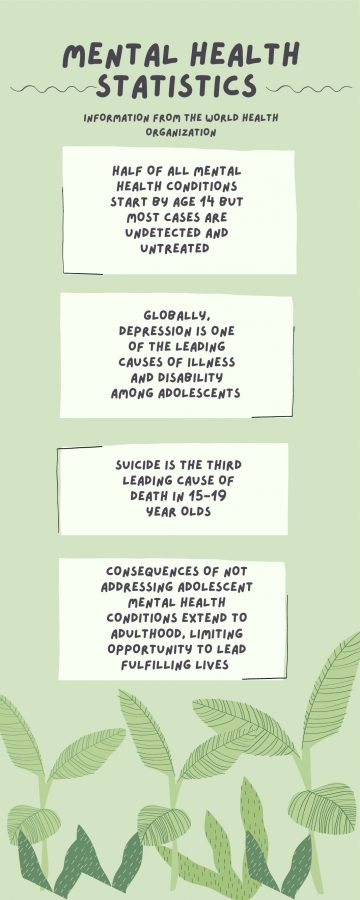What TAS students wished they had
In recent years, Taipei American School has continued to increase the mental health resources available for its students. Within the last decade, TAS has hired more licensed therapists, counselors, and psychologists at school, held more mental health discussions with distinguished speakers, and allowed students and faculty members to take mental health days. The Upper School even started implementing weekly advisory meetings this school year as an attempt to create a safer environment for students to discuss their emotional and mental well-being with a close group of people.
However, with recent events in our community, some upper school students still wish for more mental health support. “I think right now we are a little unstable, we are just picking up from a pretty tragic event, so I think people are like in multiple ranges. There are people who do not feel as affected and there are some people who still really need help and need to go see their counselors,” Gustavo Vera (‘22, he/him) said.
Unfortunately, not every student at TAS feels as if they have a trusted adult that they can go turn to regarding their own mental well-being. “I think personally I don’t [have] an adult that I can trust and feel comfortable talking to about mental health,” Ian Ho (‘21, he/him) said. “I don’t think there are a lot of adults who are as comfortable about mental health [in our community].”
Other students want adults to continue checking in with them, especially during periods of high stress. “I feel like counseling could get more involved at times when [students] have a lot of tests or assessments [due], ” Gustavo said.
Some students believe that the school should discuss the resources that are available on campus more openly. “I feel like knowing about the resources [that] we have is important. I did not know that we had a psychologist at TAS until this year, and I still don’t know how to make appointments or get in contact with her,” Celine Yung (‘22, she/her) said. “We do have a lot of resources and so I think that the [if] the school and the [administration] could direct us to these resources, and remind us that [these resources] exist, it could be really helpful.”
However, this responsibility to improve students’ emotional well-being and mental health does not only depend on the administration but on the whole student body. Students must continue showing up for each other during times of need. “I think TAS students have done a pretty good job. They have been a lot more receptive to their friends and we should continue supporting each other. Teachers should also start thinking about how to get students to reach out [to each other] more,” Gustavo said.


![A myriad of impressive trophies and awards. [ANNABELLE HSU/THE BLUE & GOLD]](https://blueandgoldonline.org/wp-content/uploads/2025/09/Awards2-600x256.jpeg)
![Students' calendars say goodbye to exam week. [ANNABELLE HSU/THE BLUE & GOLD]](https://blueandgoldonline.org/wp-content/uploads/2025/09/Exam-week-600x370.jpg)
![A collection of college flags. [PHOTO COURTESY OF AMBER HU ('27)]](https://blueandgoldonline.org/wp-content/uploads/2025/05/IMG_5029-600x289.jpeg)

![An SAT word cloud. [PHOTO COURTESY OF WORDCLOUDS]](https://blueandgoldonline.org/wp-content/uploads/2025/05/SAT-600x600.jpeg)